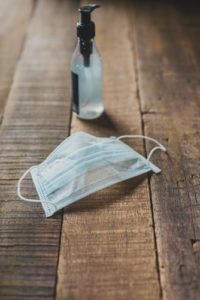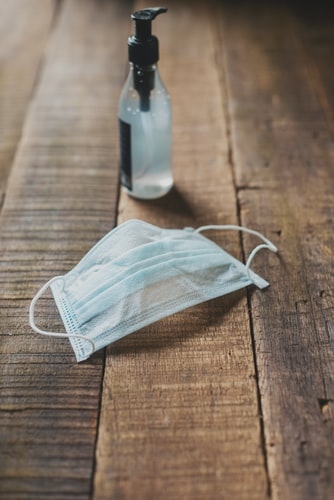On March 29, 2021, Florida Governor Ron DeSantis signed into law a bill that protects businesses from COVID-19 liability-related lawsuits. This new law applies to not-for-profit businesses as well, which is the corporate structure of Florida’s homeowners’ and condominium associations. As a result, Florida’s community associations are protected by this new law and against COVID-19-related liability claims so long as HOAs and condominiums comply with the requirements of the law.
The legislation provides strict requirements for any civil actions brought against community associations alleging COVID-19-related damages claims. The law places higher standards and burdens of proof on the potential claims of would-be plaintiffs who are seeking to sue community associations for COVID-19 related issues. In order for a potential lawsuit to move forward and survive dismissal, the plaintiff must first demonstrate that the community association deliberately ignored federal and state guidelines.
 A plaintiff must also obtain and file with a court, contemporaneously with the filing of his/her complaint, a signed affidavit from a doctor attesting “within a reasonable degree of medical certainty” that the alleged damage, injury, or death caused by COVID-19 was a direct result of the community association’s actions or omissions. If a court determines that the plaintiff did not meet these pleading and affidavit requirements of the new law, then the court must dismiss the lawsuit.
A plaintiff must also obtain and file with a court, contemporaneously with the filing of his/her complaint, a signed affidavit from a doctor attesting “within a reasonable degree of medical certainty” that the alleged damage, injury, or death caused by COVID-19 was a direct result of the community association’s actions or omissions. If a court determines that the plaintiff did not meet these pleading and affidavit requirements of the new law, then the court must dismiss the lawsuit.
For a plaintiff to prevail on his/her claims, the plaintiff must demonstrate “clear and convincing evidence” of “gross negligence” by the community association. Said another way, a plaintiff must demonstrate the community association deliberately ignored guidelines for the lawsuit to survive dismissal. This is a very high burden of proof for plaintiffs to meet. So long as a community association is abiding by the recommendations of the federal, state and/or local governing authorities (including the CDC) then a plaintiff likely won’t be able to meet this burden.
If the court determines that the community association made such a good faith effort, the community association will be immune from civil liability. If the court determines that the community association did not make a good faith effort to comply with federal, state, and/or local guidelines, the plaintiff may proceed with the lawsuit. However, absent at least gross negligence proven by clear and convincing evidence at trial, a defendant will not be liable for any act or omission relating to a COVID-19 related claim under this new law.
This new law takes effect immediately and, therefore, is now applicable to any COVID-19 related claims made against community associations. The law will also apply retroactively to the outset of the COVID-19 pandemic. It imposes a one-year deadline, from the date it became law (March 29, 2021) or from the date of the injury, for a person to file a claim.
The important take-away for HOAs and condominiums is that their risk of liability increases if they are not doing their best to implement internal protocols that comply with federal, state and local guidelines on handling the COVID-19 pandemic. Community associations should do their best to enforce social distancing guidelines on the common areas and at association meetings. There should be cleaning supplies and hand sanitizing stations placed within the common areas for members, tenants, and guests to use. Community associations should also consider enforcing a mask mandate within the common areas. They should post warning signs, which include signs enforcing social distancing and the wearing of masks indoors, on common areas such as pools, clubhouses, gyms, etc. HOAs and condominiums should also allow its members to participate in meetings through online forums such as Zoom and MS Teams. These measures will help community associations demonstrate they are doing their part to enforce and comply with federal, state and local guidelines so that they can benefit from the protections against liability afforded under this new law.
A community association should seek legal guidance from an attorney knowledgeable in community association law if it has any questions or concerns on this new law and related issues.
Check out more of our blogs here!
Visit our LinkedIn for the latest Cobb & Gonzalez updates!

